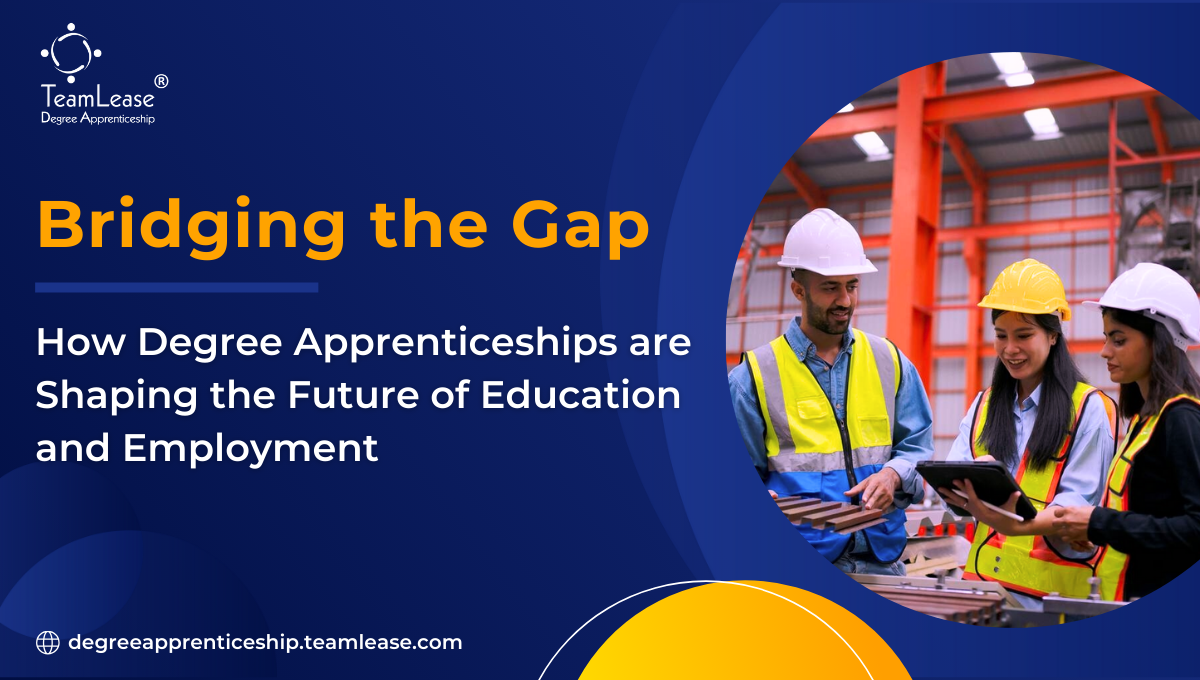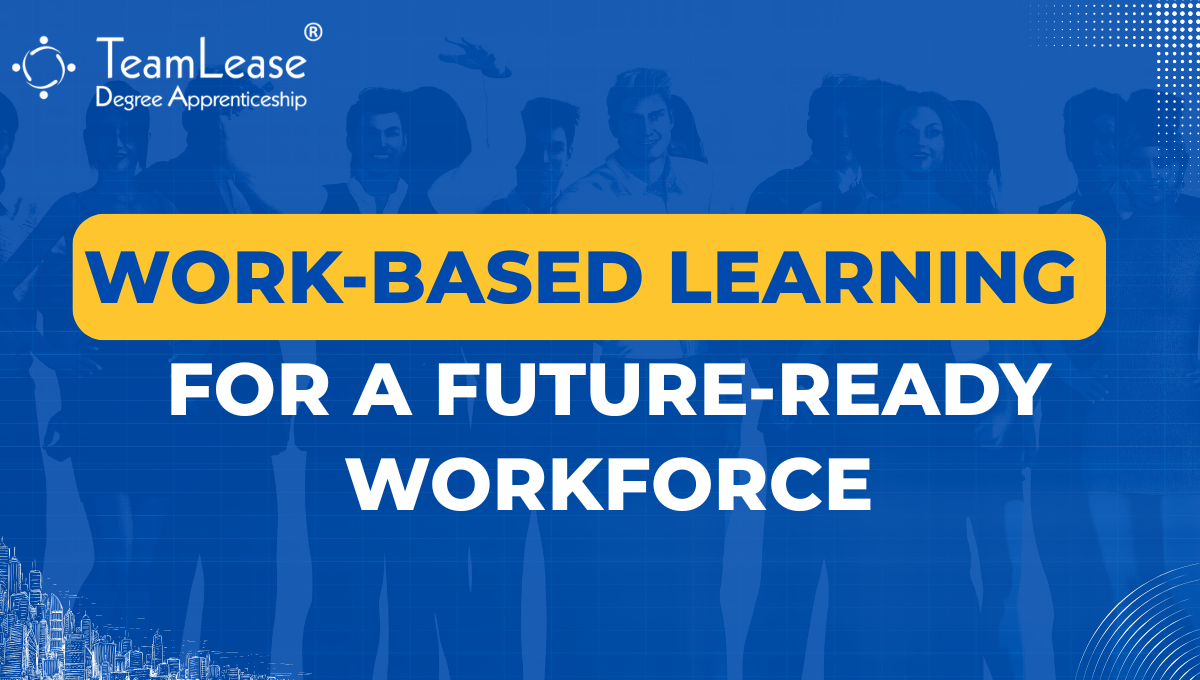As business models evolve rapidly, the traditional pillars of education, classroom theory and vocational training, must also adapt to meet the demands of the modern workforce.
In India, while we excel in theoretical learning, vocational training has not received the emphasis it deserves. This gap underscores the need for a more integrated approach to education that combines both traditional and practical elements. Degree Apprenticeships, is the solution poised to address these challenges and enhance employability for the future.
The Shortcomings of Traditional Learning
Formal classroom training has long been a cornerstone of education, providing students with a solid theoretical foundation. However, this approach often falls short in preparing graduates for the real-world demands of the industry. Several organizations find themselves investing significant resources into training new hires, sometimes for up to a year, to make them job-ready. This extended training period highlights a critical flaw in purely theoretical learning - graduates are often not immediately industry-ready.
The Limitations of Vocational Training
On the other hand, vocational training focuses on hands-on experience and repetitive tasks, which can lead to proficiency in specific skills. However, this method often lacks the elements of critical thinking and innovation necessary for modern workplaces. Without the integration of theoretical knowledge, vocational training alone cannot foster the well-rounded skill set required for complex problem-solving and innovation.
Our Chief Executive Officer discusses the importance of Degree Apprenticeships. Watch the Video on YouTube now!
The Advantage of Degree Apprenticeships
Degree Apprenticeships bridge this gap by combining formal education with on-the-job training. These programs provide a comprehensive learning experience that integrates classroom theory with practical application. This dual approach ensures that students not only acquire foundational knowledge but also gain valuable real-world experience, enhancing their readiness for employment.
Collaborating for Improvement: Government Initiatives
To further enhance the effectiveness of apprenticeships, TeamLease Degree Apprenticeship is working closely with the Ministry of Skill Development, NSDC and other government bodies.
Key initiatives include the development of a Tripartite Agreement, which legally recognizes the contract between industry, academia and students. This framework is crucial for establishing formal, legally recognized apprenticeships.
Additionally, we are advocating for a formal apprenticeships credit framework that aligns with the UGC Act and NEP, allowing students to earn credits through both formal classroom learning and apprenticeships. This approach ensures that education and training are not mutually exclusive but are integrated to provide a complete learning experience.
Embracing Online Learning and Industry Differentiation
In this hybrid world, it's essential to explore how Skills Universities can offer legal degrees online. This flexibility supports apprentices who work on-site while pursuing their education remotely. Furthermore, differentiating apprenticeship programs to cater to specific industries, such as MSMEs, can further tailor training to meet sector-specific needs.
Degree Apprenticeships can Shape India's Future
By integrating traditional education with vocational training through Degree Apprenticeship programs, we are not only enhancing employability but also shaping the future of India's workforce. These efforts, supported by government initiatives and industry partnerships, are paving the way for a more progressive and skilled nation. As we continue to refine and expand these programs, Degree Apprenticeships stand as a promising solution to the evolving challenges of education and employment in India.
For more details on Degree Apprenticeships and how these programs can benefit your organization and the country, Talk to us




No comments yet
Your Comment